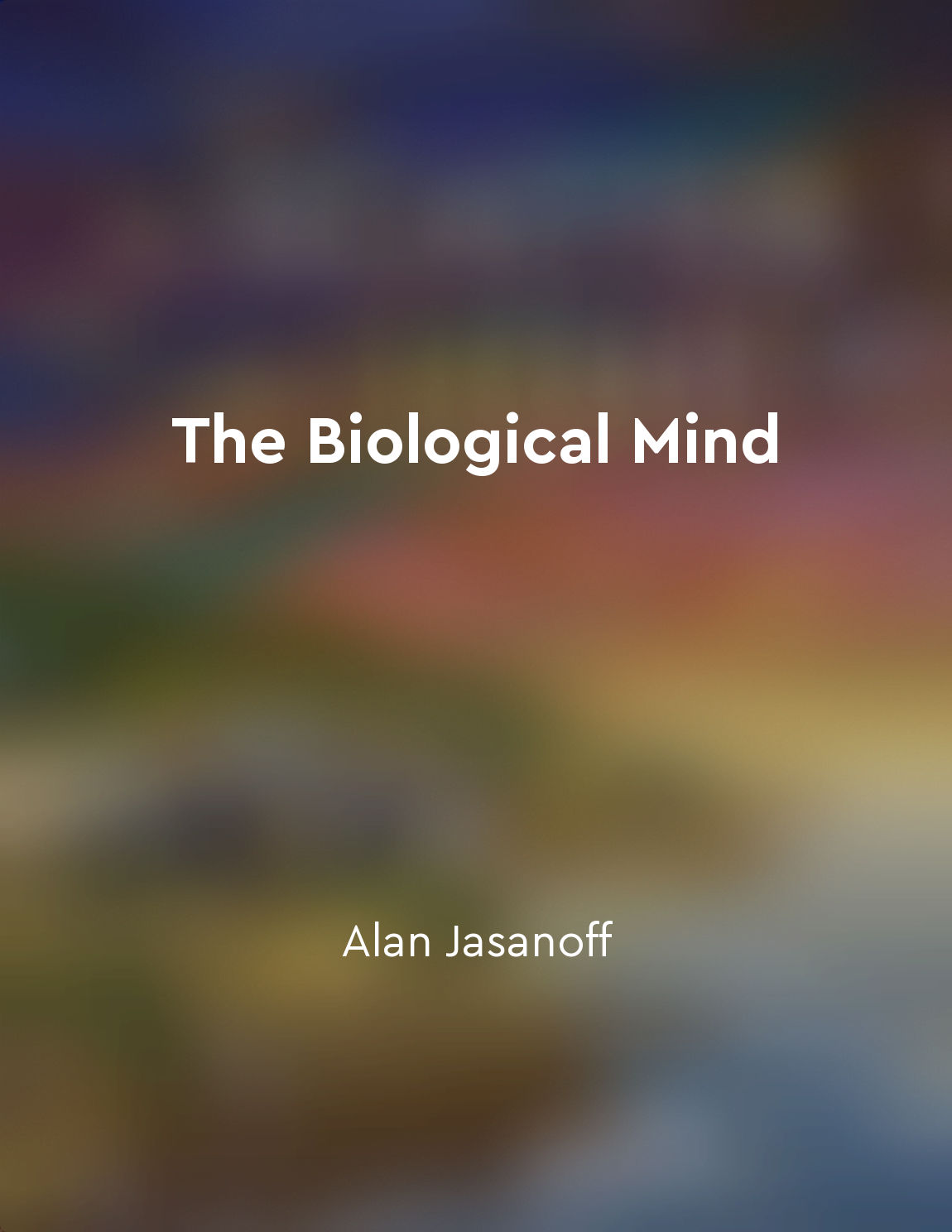The brain is constantly adapting to new experiences from "summary" of The Biological Mind by Alan Jasanoff
The brain, that mysterious organ within our skulls, is a marvel of adaptability. It thrives on novelty and constantly seeks out new experiences to shape its neural circuits. When we encounter something new, our brains spring into action, forging connections between neurons and forming new pathways for information to travel. This process, known as neuroplasticity, is the brain's way of keeping up with the ever-changing world around us. Every time we learn a new skill or acquire new knowledge, our brains undergo subtle changes to accommodate this newfound information. This is why practice makes perfect - the more we engage with a new experience, the more our brains adapt to it, becoming more efficient at processing and storing relevant information. As we repeat a task or activity, our neural connections strengthen, making it easier for us to perform that task in the future. But adaptation doesn't stop there. Our brains are constantly evolving in response to the environments we find ourselves in. Whether we're navigating a crowded city street or exploring a new hobby, our brains are busy adjusting to the sensory inputs they receive. This ability to adapt on the fly is what allows us to learn and grow throughout our lives, no matter how old we may be. Neuroplasticity is a powerful force that shapes our perceptions, behaviors, and even our personalities. It is what enables us to recover from brain injuries, learn new languages, and develop new skills. By embracing new experiences and challenging ourselves to think in different ways, we can harness the full potential of our brains and unlock untapped abilities we never knew we had. In a world that is constantly changing, our brains are our greatest allies, adapting and evolving to help us thrive in an ever-shifting landscape.Similar Posts

Neurological conditions can challenge our understanding of reality
In the case of Dr. P., a music teacher who could not recognize faces, we are confronted with the profound impact of neurologica...
Techniques like fMRI and EEG enhance our understanding of brain activity
Functional magnetic resonance imaging (fMRI) and electroencephalography (EEG) are powerful tools in cognitive neuroscience, pro...
Mastery is achievable through disciplined practice
The pathway to mastery is not a mysterious process reserved for the chosen few, but rather a result of deliberate and disciplin...
Mindfulness meditation can reshape neural pathways for calm
Mindfulness meditation involves paying attention to the present moment with openness, curiosity, and acceptance. By training th...
Movement can stimulate brain healing
Norman Doidge delves into the fascinating concept that movement has the power to kickstart the brain's healing process. He expl...

Mental rehearsals improve performance
Research shows that mental rehearsals have a significant impact on improving performance in various tasks. By mentally rehearsi...
Physical activity enhances cognitive performance
When you move, you stimulate the production of a special substance called brain-derived neurotrophic factor (BDNF). This protei...
There is a genetic basis for intelligence
The idea that intelligence has a genetic basis is a topic of much debate and controversy in the field of psychology. Researcher...
Stay committed to your growth
The key to transforming your life lies in your unwavering dedication to your personal evolution. This commitment is not just a ...

Brain plasticity can compensate for sensory deficits
Ramachandran demonstrates how the brain is capable of adapting to sensory deficits through a phenomenon known as brain plastici...

